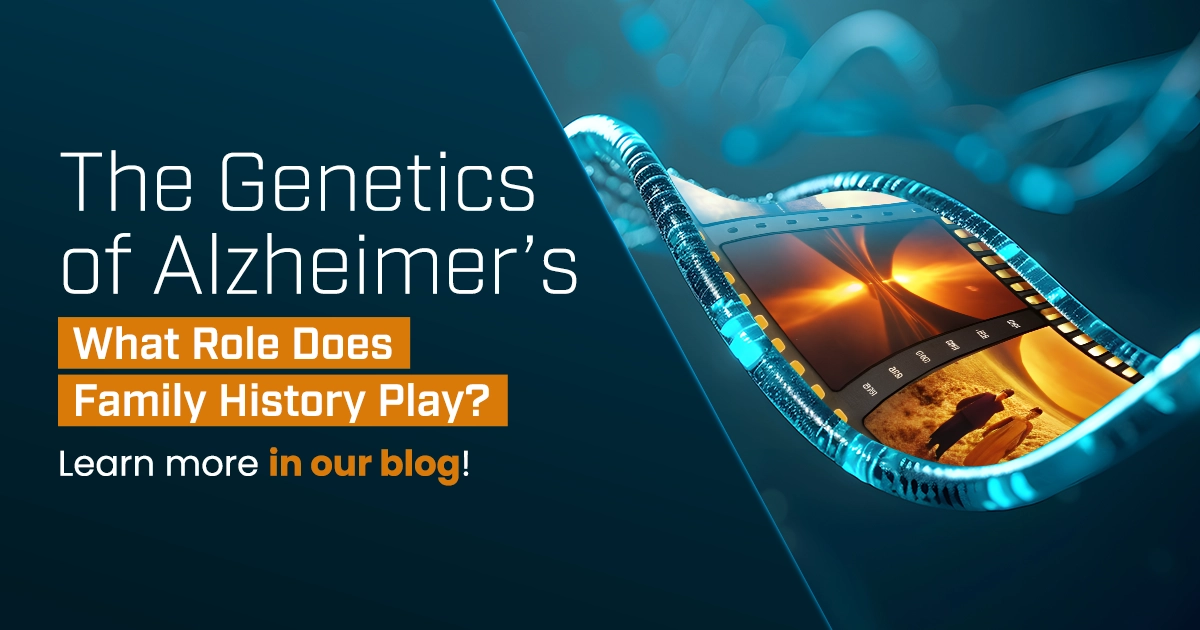Alzheimer’s disease is a complex neurological condition that affects millions of people worldwide. While age remains the most significant risk factor, many people wonder: Does family history increase my chances of developing Alzheimer’s? Understanding the genetic connection to Alzheimer’s is a critical step in unraveling the mystery of this disease and finding potential treatments.
Understanding the Role of Genetics
Alzheimer’s disease is classified into two main types: early-onset and late-onset Alzheimer’s. Each type has distinct genetic factors that may influence the likelihood of developing the condition.
- Early-Onset Alzheimer’s
Early-onset Alzheimer’s is rare, accounting for less than 10% of all cases. This form typically affects individuals younger than 65 and is strongly associated with specific genetic mutations in the APP, PSEN1, or PSEN2 genes. These mutations are inherited in an autosomal dominant manner, meaning if one parent carries the mutation, there’s a 50% chance it will be passed to their child. - Late-Onset Alzheimer’s
Late-onset Alzheimer’s is the most common form and typically develops after the age of 65. Unlike early-onset, it doesn’t have a direct genetic cause. However, researchers have identified the APOE gene, specifically the APOE-e4 variant, as a significant risk factor. Carrying one copy of APOE-e4 increases the risk, while carrying two copies further amplifies it. However, it’s essential to note that having the APOE-e4 gene doesn’t guarantee an individual will develop Alzheimer’s—it only indicates an increased risk.
Family History and Alzheimer’s Risk
If a close relative, such as a parent or sibling, has been diagnosed with Alzheimer’s, your risk may be slightly higher compared to someone without a family history. This elevated risk likely results from a combination of shared genetics and environmental factors, such as lifestyle habits.
Can You Reduce Your Risk?
While you can’t change your genetic makeup, adopting a healthy lifestyle may help lower your overall risk. Key strategies include:
- Staying physically active.
- Eating a balanced diet, such as the Mediterranean or DASH diet.
- Managing chronic conditions like diabetes and hypertension.
- Prioritizing mental stimulation and social connections.

Research is Unlocking Answers
Understanding the genetic factors of Alzheimer’s is critical to developing better diagnostics, treatments, and preventative strategies. Research studies are exploring the link between genes and Alzheimer’s to uncover new ways to slow or prevent disease progression.
Explore Research Studies at Brainstorm Research
If you or a loved one has been affected by Alzheimer’s, participating in a clinical research study could be a meaningful way to contribute to advancements in understanding and treating this disease. At Brainstorm Research, we’re dedicated to investigating innovative therapies for Alzheimer’s disease. Explore enrolling Alzheimer’s disease studies and help pave the way for a brighter future.


